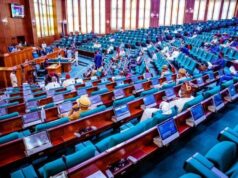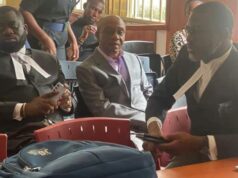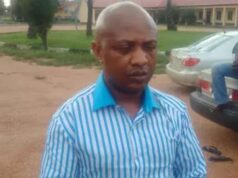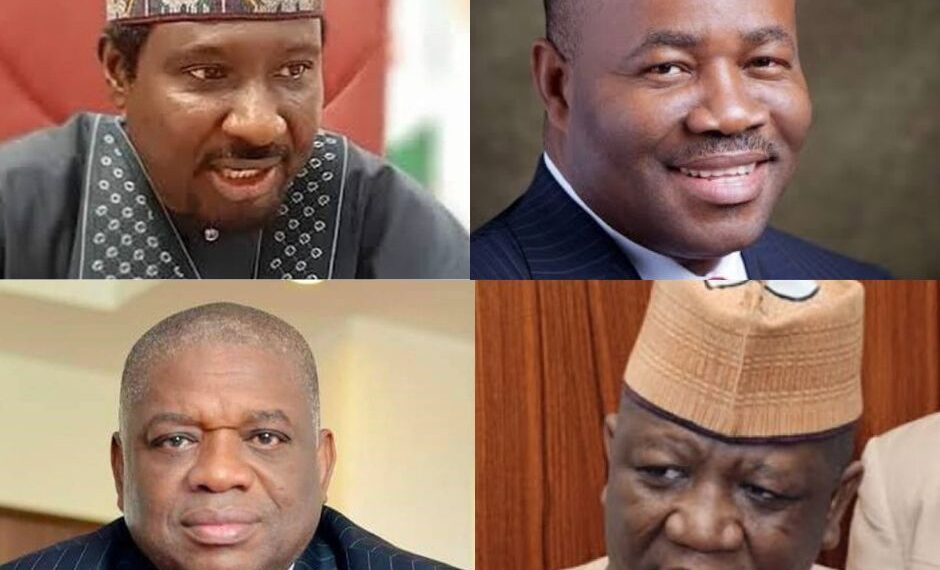
The 2023 transition process in Nigeria will be concluded with the inauguration of the 10th National Assembly and the election of the presiding officers of the two chambers. The inauguration has been scheduled for 5 June, a week after the swearing-in of the president-elect, Bola Tinubu, on 29 May.
At least six senators are running for the seat of the president of the 10th Senate. The contestants are from four of the nation’s six geo-political zones: the North-west, South-east, South-south and North-central. The two other zones – South-west and North-east – having produced the president and vice president-elect respectively, are not favoured to produce the head of the Legislature and third to the president in the order of succession.
The National Assembly has had eight Senate Presidents so far in the Fourth Republic. The first five of them were from the South-east region, the next two from the North-central region and the outgoing one from the North-east.

The South-east delegation monopolised the seat in the first two assemblies of the dispensation between 1999 and 2007 under the Olusegun Obasanjo presidency. Those who held the seat include Evan Enwerem from Imo State, who served between June and November 1999; Chuba Okadigbo from Anambra State who served from 1999 to 2000, Pius Ayimn from Ebonyi State who served between 2000 and 2003, Adolphus Wabara from Abia State who served between 2003 and 2005 and Ken Nnamani from Enugu State who served from 2005 to 2007.
The North-central produced the next two Senate Presidents, who shared the next two assemblies between 2007 and 2019. They are David Mark from Benue State who presided from 2007 to 2015, and Bukola Saraki from Kwara State who served from 2015 to 2019.
The incumbent Senate President, Ahmad Lawan, who was elected in 2019, is from Yobe State in the North-east region. Mr Lawan is the first senator from his region to be Senate President. He has been elected for the fifth term to the Senate but has not officially declared interest in retaining the top seat. However, his prospect of retaining the seat is considerably dimmed by the fact that he is from the same region as Vice President-elect Kashim Shettima and of the same Muslim faith as Mr Shettima and the President-elect, Bola Tinubu.
Contents
Battle
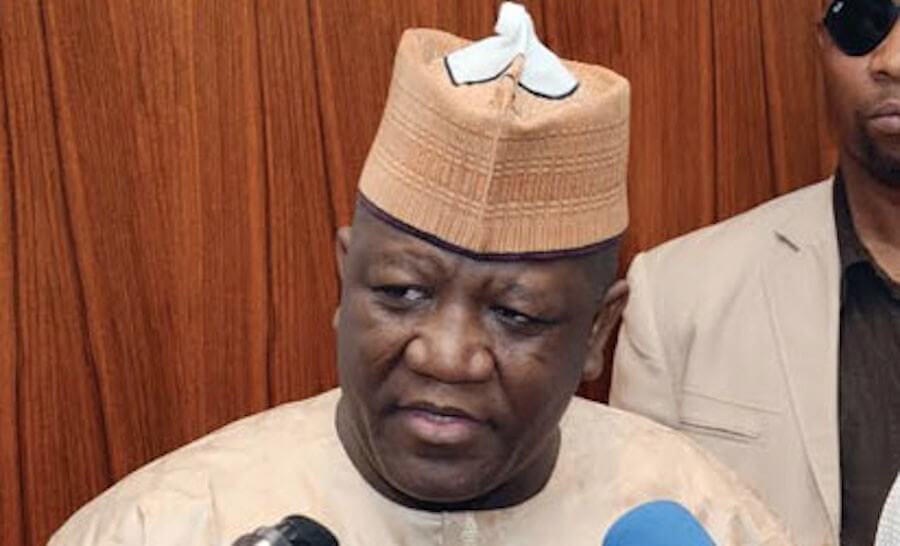
Barau Jibrin from Kano State and a former governor of Zamfara, Abdulazeez Yari, are the two contestants from the North-west. Their supporters have urged the ruling All Progressives Congress (APC) to allocate the seat to the zone as a reward for its strong support for the party in the presidential election. The APC got its largest votes per zone from the North-west, larger than it got from the home zones of the President-elect and Vice President-elect.
From the South-east, there were three aspirants in the race. They are incumbent governor of Ebonyi State, Dave Umahi; a former governor of Abia State who is the incumbent Senate Whip, Orji Kalu, and Osita Izunanaso from Imo State. However, Mr Umahi announced his withdrawal from the race on Friday.
![Governor David Nweze Umahi [PHOTO CREDIT: The Official Governor's Facebook account]](https://media.premiumtimesng.com/wp-content/files/2021/12/168448622_256562415942348_4650796786838530565_n.jpg)
A former governor of Akwa Ibom State, Godswill Akpabio, who was Senate Minority Leader between 2015 and 2019 before he defected from the Peoples Democratic Party (PDP) to the ruling APC, is yet the only contestant from the South-south to have declared his bid, although Adams Oshiomhole, a former governor of Edo State and former national chairman of the APC, has also been mentioned from the zone, in spite of being a first-term senator. Mr Akpabio’s ambition got a boost last week as he got the endorsement of APC governors as well as that of Mr Umahi.

Sanni Musa from Niger State in the North-central is also in the race but has indicated a preparedness to accept the deputy Senate President seat should the APC zone the top seat elsewhere.
Unlike in the preceding two assemblies (2015 to 2019 and 2019 to 2023), the APC has a slimmer majority in the incoming 10th Senate with 59 members. The PDP has 29 members, the Labour Party has six members, and the New Nigeria Peoples Party (NNPP) and the Social Democratic Party have two members each. The All Progressives Grand Alliance (APGA) and Young Peoples Progressive Party (YPP) complete the 109-member Senate with one member each.
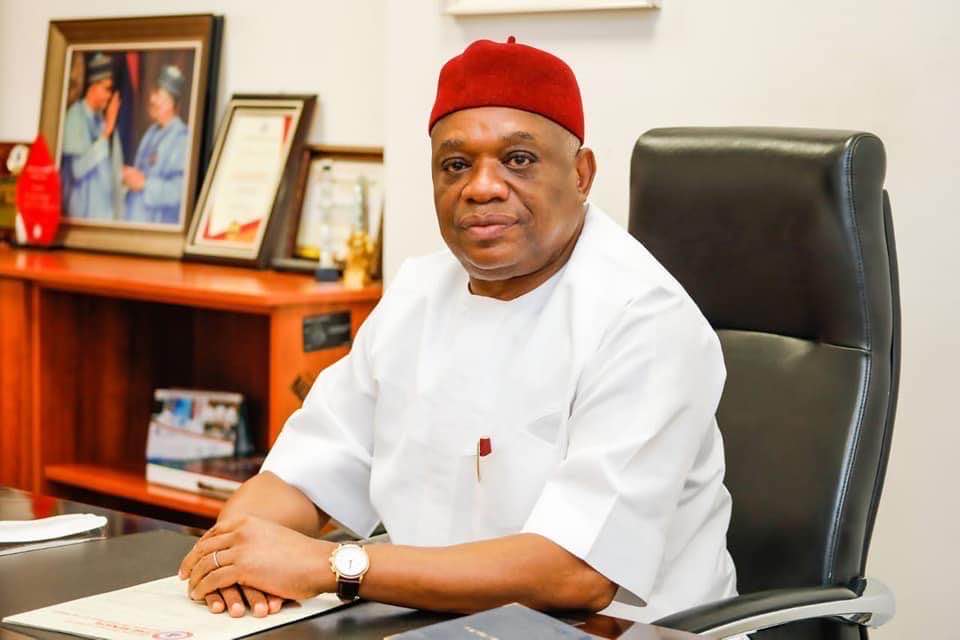
The ruling APC has yet to decide on which zones to produce the presiding officers of the Senate and the House of Representatives but there had been indications the South-east and South-south were being favoured for the presidency of the Senate. The zones that miss out on the allocation of the Senate President and Deputy Senate President will share the positions of Senate Leader, Deputy Senate Leader and Senate Whip, who are the other principal officers of the Senate, alongside the Minority Leader and Minority Whip who are members of the minority caucus.
Chances
Should the APC zone the Senate presidency to the North-west, Mr Jibirin will be the favourite to take it. The Kano lawmaker has been in the Senate since 2015 representing Kano North District. He is the current Chairman of the Senate Committee on Appropriations. In the 8th Assembly, he served as the Chairman of the Senate Committee on Tertiary Institutions and TETFUND.
His rival from the zone, Mr Yari is coming in as a first-timer in the Senate. Although he won an election to the Senate in 2019 while concluding his second term as governor, a crisis in the Zamfara State chapter of the party led to the Supreme Court stripping him and other APC candidates elected from the state of their seats after affirming that the party did not conduct valid primaries for the nomination of its candidates for the general elections. Under Senate rules, only ranking senators, who have served more than one term, can vie for the seats of presiding officers.
APC Governors endorse Akpabio
On Friday, the Governor of Kano State, Abdullahi Ganduje, said governors of the ruling APC had decided to zone the Senate presidency to the South-south. The governors, under the umbrella of Progressive Governors Forum (PGF), had earlier recommended the seat for either the South-east or South-south. They also proposed that the position of majority leader, deputy majority leader and chief whip should be used as compensation for those that may be asked to step down from the leadership race.
In a video circulated on the internet by African Independent Television (AIT), Mr Ganduje also said the APC governors decided to support Mr Akpabio. The video showed Mr Ganduje and some of his governor colleagues, including Ben Ayade of Cross River State, in a meeting with some individuals.

“The Senate President of the Federal Republic of Nigeria will come from the South-south and no other person than the former governor of Akwa Ibom, the uncommon governor, the uncommon minister who will be the uncommon president of the Senate. We have resolved that, so we are giving you assurance. We are waiting for the deal day to be the Senate President of Nigeria,” Mr Ganduje said.
However, of the contestants who had declared their ambition, only Mr Umahi has, so far, announced that he would step down for Mr Akpabio.
Also, there had been reports that the sitting Senate President, Mr Lawan, was opposed to the bid of Mr Akpabio over developments connected to his supervisory roles in the Niger Delta Development Commission (NDDC) as Minister of Niger Delta Affairs. Mr Lawan was said to have proposed amending the Senate Standing Rules to allow newcomers such as Mr Oshiomhole to run for the seat, should the party insist on the South-south.
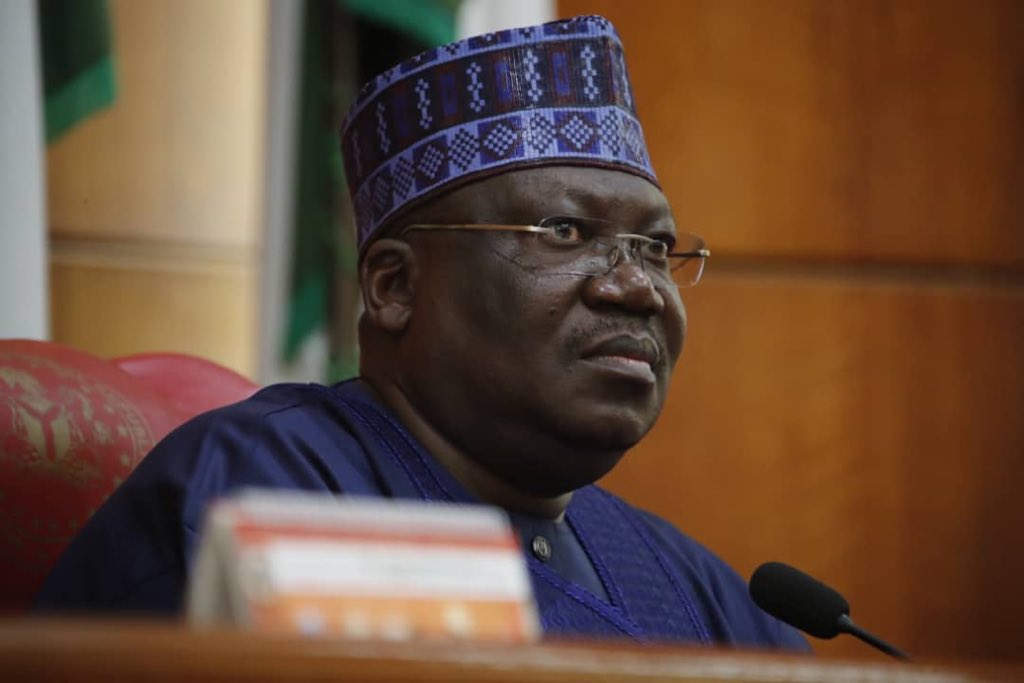
The region is probably being favoured because it gave more votes to the APC in the presidential election than the South-east, despite the latter having two APC governors. The South-south has also not produced a Senate President since 1983 when the late Joseph Wayas held the position throughout the Second Republic. The South-east is the only southern zone to have produced the Senate President in the Fourth Republic but it is also the only zone in the region that has not produced the President of Nigeria.
With the declaration of the APC governors despite the open objection of Mr Lawan, more drama is expected on this issue until 5 June when the 10th National Assembly will be inaugurated.






































